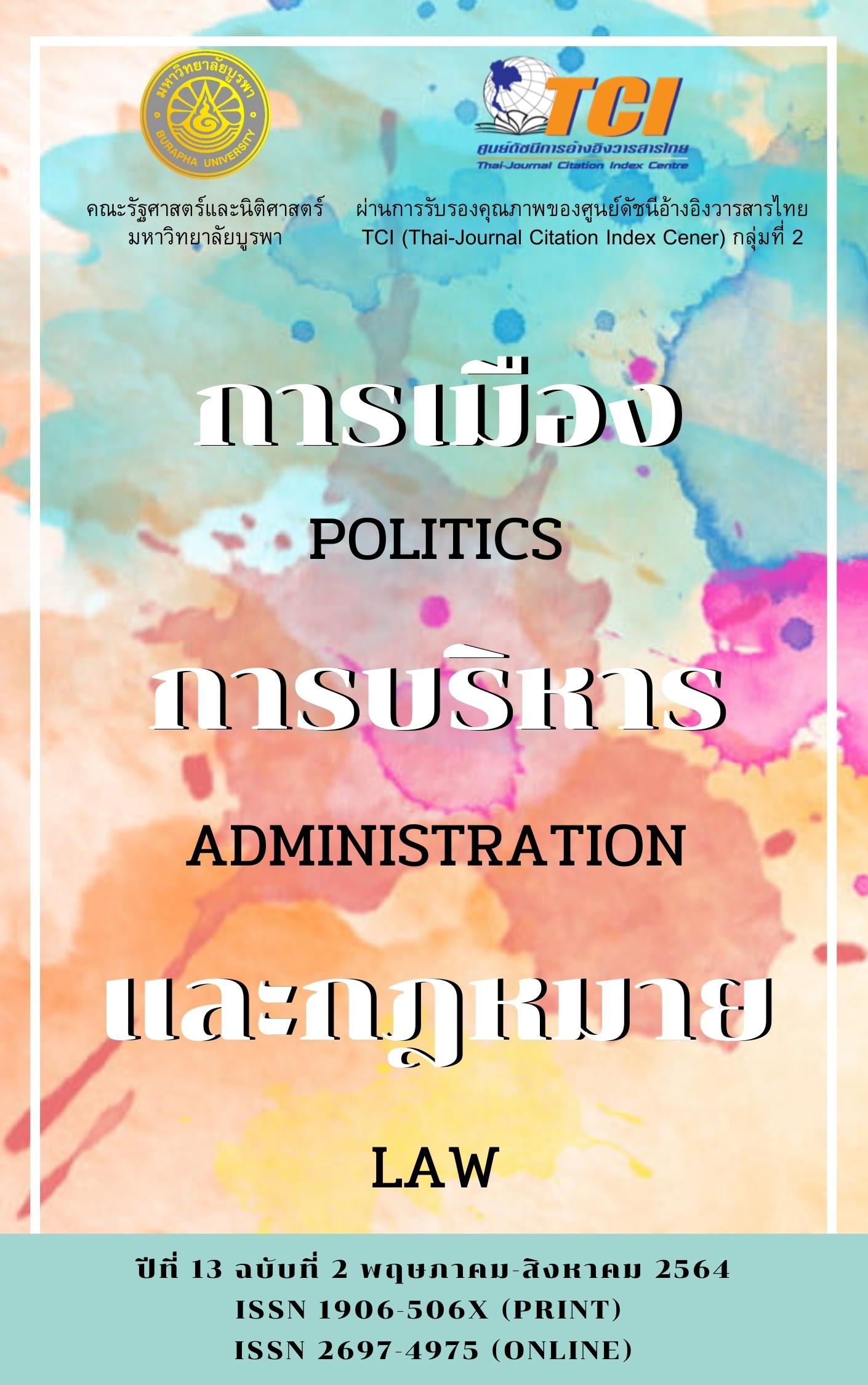An Approaching of Social Welfare of the Church of Jesus Christ of Latter Day Sains
Keywords:
Social welfare of the church, Jesus christ of latter day sainsAbstract
Providing social welfare by the Church of Jesus Christ of Latter-day Saints found that an important principle in carrying out welfare services by the Church is to increase members' love. Take care of each other more caused by the core teachings of religion faith in god and coming together to carry out Church activities. The key principles of welfare proceedings apply the principles for people who will be helped to determine how well they can be self-reliant. The Church has welfare programs to improve the quality of life, education, and work, but must begin with the efforts of that individual. The welfare work of the Church helps fellowmen in two ways: spiritual and secular. Spirituality is that the Church teaches to be self-reliant, to teach control of emotions. To have love for God in order to pass it on to your world mates. The Church of Jesus Christ of Latter-day Saints will teach about love. Forgiveness is important to teach people the two main points: love God first and love your neighbor. The word "neighbor" starts with family members. Teaches to learn to manage one's emotions, to understand life can plan of salvation. As for the secular to is to provide tangible assistance such as donations of food, necessities funding for education, coaching, etc. The pattern of welfare and participation of the Church in the provision of social welfare found that the Church's welfare operations have procedures. There are an assortment of welfare assistance. There is a clear operational structure. By specifying the responsible person, Activity and when the work is finished, The performance will be evaluated. For personnel, the work comes from the cooperation of Church members who come to work in faith. In some projects, workers do not have compensation. The money spent on the activities will come from the sacrifice of the members of the Church. Income people are entitled to share the so-called "ration ten", which is to bring 10% of the amount of income that can be obtained each day, week, month or each year to donate 10% of the income by believe that all 100% of the money is given to us by God, so we return 10% to him.
References
กรองทอง กาญจนเลิศพรทวี. (ม.ป.ป.). งานสังคมสงเคราะห์ของศาสนาคริสต์คาทอลิก กรณีศึกษาด้านสุขภาพของผู้สูงอายุ (บ้านพักเบธานี). ม.ป.ท.
การสัมภาษณ์ส่วนบุคคล. 25 สิงหาคม 2562. สัมภาษณ์.
บุญเลื่อน หมั้นทรัพย์. (2553). อยู่กับปวงประชา. กรุงเทพฯ: แผนกยุติธรรมและสันติ.ประธานสาธิต. 18 เมษายน 2562. สัมภาษณ์.
พรรณทิพย์ เพชรมาก. (2545). สวัสดิการชุมชน แก้จนอย่างยั่งยืน. กรุงเทพฯ: กระทรวงการพัฒนาสังคม และความมั่นคงของมนุษย์, สถาบันพัฒนาองค์กรชุมชน (องค์การมหาชน).
วิสา ตั้งนทีทวีผล. (2560). รายงานการเงินฐานรากไตรมาสที่ 3 ปี 2560. กรุงเทพฯ: สำนักงานนโยบายพัฒนาระบบการเงินภาคประชาชน สำนักงานเศรษฐกิจการคลัง.
สถาบันส่งเสริมภาคประชาสังคม. (ม.ป.ป.). ตอนที่ 2: องค์กรภาคประชาสังคมในประเทศไทย. วันที่ค้นข้อมูล 12 มกราคม 2562, เข้าถึงได้จาก http://www.thaicivilsociety.com/?p=content&id_content=250
สมนึก ปัญญาสิงห์. (2532). การพัฒนาชุมชน = Community development. ขอนแก่น: ภาควิชาสังคมศาสตร์ คณะมนุษยศาสตร์และสังคมศาสตร์ มหาวิทยาลัยขอนแก่น.
เสรี พงศ์พิศ, คมสัน หุตะแพทย์, และรุ่งโรจน์ ตั้งสุรกิจ (บ.ก.). (2528). คำสอนเพื่อสังคม: สมณสาระสำคัญของศาสนจักรคาทอลิกเกี่ยวกับการพัฒนาและสันติภาพ. กรุงเทพฯ: สภาคาทอลิกแห่งประเทศไทยเพื่อการพัฒนา.
Davies, T. R. (2013). NGOs: A new history of transnational civil society. London: Hurst & Company.
Ferris, E. (2005). Faith-based and secular humanitarian organizations. International Review of the Red Cross, 87(858), 311-325.
Hoffstaedter, G., &Tittensor, D. (2013). Religion and development: Prospects and pitfalls of faith-based organizations. In M. Clarke (Ed.), Handbook of research on development and religion. Cheltenham, U.K: Edward Elgar.
Hood, C. (1991). A public management for all seasons?. Public Administration, 69(1), 3-19.
Reid, P.N. (1998). Social welfare history” In encyclopedia of social work. Washington: Pc. National Association of Social Workers.
Turner, J. (1974). Development and administration: Operational implications for social welfare. New York: United States Committee, International Council on Social Affair.
Downloads
Published
Issue
Section
License

This work is licensed under a Creative Commons Attribution-NonCommercial-NoDerivatives 4.0 International License.






